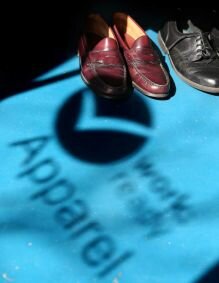Children and Families
Kids First: Parent education and mentoring
A 12-week intensive parenting course designed to improve parents' ability to nurture and support their children, while also addressing their own emotional needs. Sessions cover Triple P Positive Parenting, brain development, fostering a child's self esteem and resilience, health and safety, and self-care for parents.
Infant and Toddler Outreach
Intensive support for infants and toddlers, from birth to 18 months old, to prevent them from experiencing the developmental delays, neglect, and abuse suffered by many homeless children.
Preschool Program
Therapeutic play, language development, social skills building, fine motor skills activities, and literacy development for children ages 18 months to five years old.
After-school Tutoring
Academic development of school-age homeless children provided by staff, volunteer tutors, parents, and the local school district liaison.
Summer Enrichment
Resources for children during the summer months, provided by community members and school partnerships.
Financial Assistance
For families in acute crisis, we provide targeted financial assistance, such as a month's rent or help with a utility bill. Requests for help are considered on a case-by-case basis.
Food Programs
The Petaluma Kitchen at the Mary Isaak Center provides food boxes to community members, as well as daily hot meals to anyone in the community. Read more about our food programs.
Single Adults
Rent Right
A course in financial literacy and housing search. Subjects include budgeting, credit repair, housing search strategies, landlord-tenant relations, home maintenance, and personal presentation skills. By the end of the course, students have developed a comprehensive "renter's portfolio" to present to prospective landlords, which includes a family budget, annotated credit report, and letters of recommendation.
Work: Ready
 A job readiness class which covers resumes, interviewing, application process and professionalism. Through the Work: Ready program, COTS participants receive hands-on training in seeking and maintaining sustainable employment. In addition to this class, participants can choose to attend targeted seminars on subjects such as dealing with a criminal background, ageism, and disabilities in the workplace.
A job readiness class which covers resumes, interviewing, application process and professionalism. Through the Work: Ready program, COTS participants receive hands-on training in seeking and maintaining sustainable employment. In addition to this class, participants can choose to attend targeted seminars on subjects such as dealing with a criminal background, ageism, and disabilities in the workplace.
Once participants start a new job, they attend the Job Retention Workshop, which covers the importance of work, the basic tenets of job retention, including punctuality, communication and respect, how to leave a job appropriately and setting short and long-term goals.
Participants also have access to Work: Ready Apparel, a boutique-style shop that provides polished and good-quality work outfits. All clothing is donated and the shop is 100% volunteer managed and run. Participants who visit Work: Ready Apparel leave with work and interview outfits ready to wear as well as an increased sense of confidence and dignity.
Wellness
A wide array of services and practices that address the needs of the mind, body, and spirit.
- Healthcare: A medical clinic and satellite location for the Petaluma Health Center provides professional medical advice at the Mary Isaak Center. Medical professionals, with help from nursing students, administer direct care and/or offer referral assistance.
- Counseling: Clients with psychological disabilities or chemical dependency receive assessment, treatment, referrals, support, education, and relapse prevention services at COTS. An on-site Marriage and Family Therapist provides one-on-one counseling. Various support groups are also conducted at the Mary Isaak Center during the evenings.
- Case Management: Each resident meets regularly with a professional case manager throughout their stay. The case manager collaborates with residents to identify their obstacles to housing and develop a set of actions that will build income and create a path to stability.
- Community Service Many homeless people come to us lonely, discouraged, or afraid they might not make it. We require adults to "give back" to the community to build their self-esteem and confidence. All residents are required to sign up for chores and for two hours per week of community service. This establishes a healthy connection to the community.
